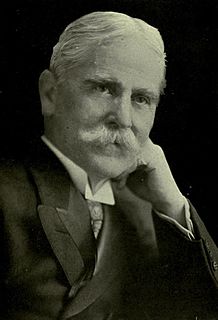A Quote by Arthur C. Clarke
You will find men like him in all of the world's religions. They know that we represent reason and science, and, however confident they may be in their beliefs, they fear that we will overthrow their gods. Not necessarily through any deliberate act, but in a subtler fashion. Science can destroy a religion by ignoring it as well as by disproving its tenets. No one ever demonstrated, so far as I am aware, the nonexistance of Zeus or Thor, but they have few followers now.
Related Quotes
But science can only be created by those who are thoroughly imbued with the aspiration toward truth and understanding. This source of feeling, however, springs from the sphere of religion. To this there also belongs the faith in the possibility that the regulations valid for the world of existence are rational, that is, comprehensible to reason. I cannot conceive of a genuine scientist without that profound faith. The situation may be expressed by an image: science without religion is lame, religion without science is blind.
However baby man may brag of his science and skill, and however much, in a flattering future, that science and skill may augment; yet for ever and for ever, to the crack of doom, the sea will insult and murder him, and pulverize the stateliest, stiffest frigate he can make; nevertheless, by the continual repetition of these very impressions, man has lost that sense of the full awfulness of the sea which aboriginally belongs to it.
Progress in computer science is made with the distribution of revolutionary software systems and the publication of revolutionary books. We don't need a fancy information system to alert us to these grand events; they will hit us in the face. Another good excuse for ignoring the literature is that, since everyone has strong beliefs about fundamentals but can't support those beliefs rationally or consistently convince non-believers, computer science is actually a religion.
Think of how many religions attempt to validate themselves with prophecy. Think of how many people rely on these prophecies, however vague, however unfulfilled, to support or prop up their beliefs. Yet has there ever been a religion with the prophetic accuracy and reliability of science? ... No other human institution comes close.
I have just been through the process of killing a cistudo for the sake of science; but I cannot excuse myself for this murder, and see that such actions are inconsistent with the poetic perception, however they may serve science, and will affect the quality of my observations. I pray that I may walk more innocently and serenely through nature. No reasoning whatever reconciles me to this act. It affects my day injuriously. I have lost some self-respect. I have a murderer's experience to a degree.
The essence of religion is inertia; the essence of science is change. It is the function of the one to preserve, it is the function of the other to improve. If, as in Egypt, they are firmly chained together, either science will advance, in which case the religion will be altered, or the religion will preserve its purity, and science will congeal.
This much I can say with definiteness - namely, that there is no scientific basis for the denial of religion - nor is there in my judgment any excuse for a conflict between science and religion, for their fields are entirely different. Men who know very little of science and men who know very little of religion do indeed get to quarreling, and the onlookers imagine that there is a conflict between science and religion, whereas the conflict is only between two different species of ignorance.
Science without religion is dangerous because it necessarily entails a mechanization of humanity and consequent loss of individual autonomy and spirituality. On the other hand, religion without science is powerless because it lacks an effective means through which to actualize the ultimate reality. Science and religion must work together harmoniously.
No good act performed in the world ever dies. Science tells us that no atom of matter can ever be destroyed, that no force once started ever ends; it merely passes through a multiplicity of ever-changing phases. Every good deed done to others is a great force that starts an unending pulsation through time and eternity. We may not know it, we may never hear a word of gratitude or recognition, but it will all come back to us in some form as naturally, as perfectly, as inevitably, . . . as echo answers to sound.
Teach your scholar to observe the phenomena of nature; you will soon rouse his curiosity, but if you would have it grow, do not be in too great a hurry to satisfy this curiosity. Put the problems before him and let him solve them himself. Let him know nothing because you have told him, but because he has learnt it for himself. Let him not be taught science, let him discover it. If ever you substitute authority for reason he will cease to reason; he will be a mere plaything of other people's thoughts.
Just to the extent that the Bible was appealed to in matters of science, science was retarded; and just to the extent that science has been appealed to in matters of religion, religion has advanced - so that now the object of intelligent religionists is to adopt a creed that will bear the test and criticism of science.





































